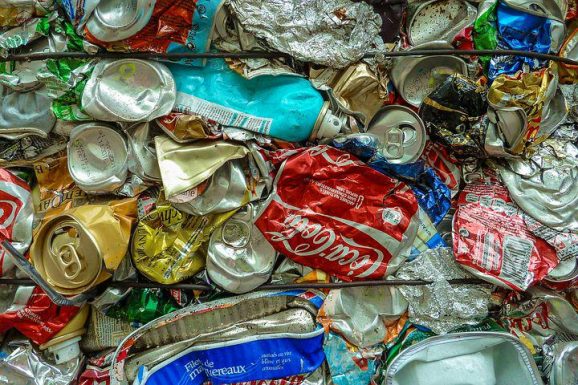Erfahre mehr über die Vorteile der Mülltrennung und des Recyclings für die Umwelt und die Gesellschaft.
Durch die Mülltrennung und das Recycling werden die negativen Auswirkungen von Abfällen auf die Umwelt und die Gesellschaft oft
verringert.
Die Mülltrennung umfasst die Verwaltung von Abfällen durch deren vorübergehende Lagerung nach Kategorien an speziell eingerichteten Orten für das Recycling.
Recycling ist das Sammeln, Trennen und Verarbeiten von bereits benutzten Produkten/Materialien oder einiger ihrer Bestandteile, um sie in neue nützliche Güter umzuwandeln.
- Papierrecycling spart etwa 25 % der Strommenge und 90 % der Wassermenge, die für die Herstellung eines Kilogramms Papier benötigt werden;
- Kartons, die zur Verpackung von Getränken (z. B. Milch, Säfte) verwendet werden, bestehen aus Papier, das durch dünne Kunststoffschichten (Polyethylen) geschützt ist. Aseptische Kartons haben eine dünne Aluminiumschicht, die es erleichtert, den Inhalt länger frisch zu halten, ohne dass Konservierungsmittel erforderlich sind, da sie das Eindringen von Sauerstoff und Licht in die Verpackung verhindern. Diese Art von Schachteln kann recycelt werden.
- Aus recyceltem PET kann eine breite Palette von Produkten hergestellt werden: Dachisolierfolien, Bauteile für die Automobilindustrie oder für Beleuchtungskörper, Kerosin für Flugzeuge, Textilien usw. Gleichzeitig werden sehr große Flächen für die Lagerung von PET benötigt. Daher ist es am besten, zu ihrem RecyclinGGbeizutragen.
- Abfälle verbringen unterschiedliche Zeiträume im Prozess der natürlichen Sortierung biodes, unterstützt durch Feuchtigkeit, Bakterien, Mangel an Licht, etc:
- Obst- und Gemüseschalen – 2-5 Monate;
- eine Papiertüte – 3-5 Monate;
- Zeitungen – 3-12 Monate
- ein Streichholz – 6 Monate;
- Kaugummi – 5 Jahre;
- ein Lederschuh – 25-50 Jahre;
- eine Dose Aluminium – bis zu 100 Jahre;
- ein PET – über 500 Jahre;
- eine Kreditkarte – etwa 1000 Jahre;
- ein Glasbehälter – 1.000.000 Jahre alt

